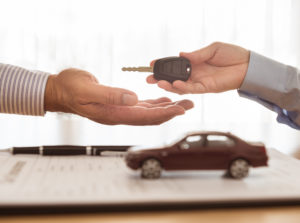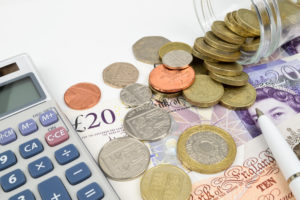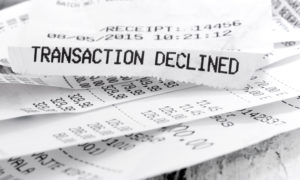Pluses and minuses of buying a car

Pluses and Minuses of buying a car
The time has come to get a new car. While it’s exciting and you’ll probably spend a lot of time researching the best makes and models for your needs. You’re also faced with a myriad of options of how best to obtain your car. It can be difficult to decide which option will suit you best. In this article, we’ll take you through the pluses and minuses of buying a car, as well as take a look at your other options.
Buying a new car
If you have your heart set on buying a new car there are some options for financing which you can choose. These include PCP HP, using a personal loan or cash. Deciding which option is a task in itself, so this article has been written by the experts at OSV to help you make the right choice.
The pluses of buying a new car
 The first main plus to buying a new car is that you own the vehicle. Unlike when you lease a car you have the logbook for the vehicle and it is your property. Once the repayments have been completed you have a car to drive around in for as long as you want too without further payments to make.
The first main plus to buying a new car is that you own the vehicle. Unlike when you lease a car you have the logbook for the vehicle and it is your property. Once the repayments have been completed you have a car to drive around in for as long as you want too without further payments to make.
If you’re a bit of a budding DIY mechanic you may want to modify your vehicle. If you own the car you have full licence to change it as you wish. Adding a new spoiler or paint job is entirely your choice.
You can re-sell the vehicle. As the owner of the car, you are able to sell it on the second-hand car market or part-exchange it at a garage at any time.
There’s no mileage or wear and tear penalties to pay. When you purchase a new car you are free to use it as much as you fit without any additional charge. If you were to lease a vehicle you would be responsible for covering the cost of things like excess mileage or increased wear and tear.
The minuses of buying a new car
 When you choose to purchase the new car on a finance option you will have to pay a high down payment. This is usually between 10%-20% of the overall vehicle value.
When you choose to purchase the new car on a finance option you will have to pay a high down payment. This is usually between 10%-20% of the overall vehicle value.
Not only that, your monthly repayments will be much higher than if you were to lease a new car. This is because you are paying towards the total value of the car plus interest. With a lease agreement, you are just paying the depreciation on the car plus fees. As a result, the monthly fee can often be £100’s lower with a lease.
Maintaining the vehicle after the warranty expires is your responsibility if you own the car. After the warranty expires things can get expensive, especially if any of the larger car parts experience a fault.
Depreciation is a major factor to be aware of when you’re considering purchasing a new car. As soon as you drive the car off of the forecourt it loses a considerable amount of its value. Not only that, when it comes to re-selling the car the time taken to list the car and meeting with potential buyers for test drives etc falls on you.
Exploring your other options
So what other options are there when it comes to getting yourself a new set of wheels? Have you considered leasing a new car? Contract Hire or Personal Contract Hire allow you to drive a brand new car for a fixed term at a fraction of the cost of buying new. Not only that, you don’t have the concern over the vehicle losing its value and having to sell it on later. So what are the pluses and minuses of leasing a car?
Pluses of leasing a car
 Lease agreements have much lower monthly payments. There are also a variety of special lease offers which dealers use in order to move stock off of the forecourt. Be sure to keep an eye out for special offers and get the best deal. Explore our special offers.
Lease agreements have much lower monthly payments. There are also a variety of special lease offers which dealers use in order to move stock off of the forecourt. Be sure to keep an eye out for special offers and get the best deal. Explore our special offers.
The down payment is much lower than if you were to put a deposit down on a new car purchase. The more you can afford to pay up-front, the lower your monthly lease payments will be. Saying that the overall cost of the lease will still be the same.
The option to drive a brand new car every few years if you want to. Most lease agreements last between 3-5 years. If you want to, you can upgrade your car as often as every year. We recommend leasing until the manufacturer’s warranty runs out which is usually 3 years. This means you can also avoid any expensive repairs outside of warranty.
You’ll only be paying for part of the vehicle’s cost. A lease price is calculated by taking the cars current price and the expected value of the car at the end of the lease agreement. The difference between these two figures is known as the residual value. This is the amount you pay.
Similarly, this future resale value that your lease price is based upon is a predicted amount. If the car decreases in value quicker than predicted then your lease price isn’t affected.
Cons of leasing a car
 If you have poor credit you may find it harder to find a lease. Whereas purchasing a car using a finance agreement, lenders can increase the APR on the loan to cover their risk if you have poor credit. Leases don’t have an APR element as they are not a loan so the risk becomes greater and there isn’t as much flexibility with this option.
If you have poor credit you may find it harder to find a lease. Whereas purchasing a car using a finance agreement, lenders can increase the APR on the loan to cover their risk if you have poor credit. Leases don’t have an APR element as they are not a loan so the risk becomes greater and there isn’t as much flexibility with this option.
You don’t own the car. This can be considered a plus for some, but if you feel more comfortable having an asset that you can sell on then leasing will not provide you with this option. Instead, you would need to start a new lease agreement if you want to change the car.
You will have to set a mileage limit. Most lease cars limit you to between 10,000 and 12,000 miles per year. You can request additional mileage when you take out the lease but it will have an affect on the vehicles predicted future value. So you will be paying a higher monthly fee. If you go over your mileage allowance you will be charged per mile you go over. The costs of excess mileage can be found in your lease paperwork.
Wear and tear on the car is your responsibility. The car must be returned at the end of the lease in a good and non-altered condition. If you do not return the car in good condition you can face additional charge at the end of your lease.
Early termination of your lease contract can be costly too. There are other options such as transferring your lease. You can read more about transferring a lease in this article.
So now that you have the pluses and minuses of buying a car it should be easier to make your decision about what will suit your needs best.
Fed up with looking for your next vehicle?
Need advice from an experienced Vehicle Specialist on what vehicle is right for you?
Book your FREE consultation now
